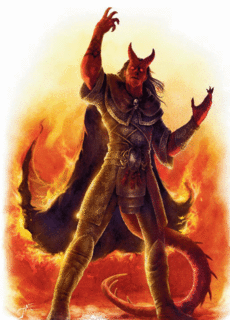yeah... remember when i said that my internet should be fixed well lets just say thing have been terrible to say the least, this time it should be fixed, sorry again.
Logeoway124 Member
Fire Lord
- Last Seen: 9 yrs ago
- Joined: 10 yrs ago
- Posts: 15 (0.00 / day)
- VMs: 0
-
Username history
- Logeoway124 10 yrs ago
Status
User has no status, yet
Bio
User has no bio, yet
Most Recent Posts
@Blackmist16
"it seems safe enough however we do not know how many more of them are down there"
Dulfuhil said standing up from crouching over the hole.
"it seems safe enough however we do not know how many more of them are down there"
Dulfuhil said standing up from crouching over the hole.
Dulfuhil used his staff to help him get up and walk over to where Esmeralda was standing
"we could try to move the rock and go after them, stop them before they can do any damage"
He said looking down the hole, trying to think of how they could do it.
"we could try to move the rock and go after them, stop them before they can do any damage"
He said looking down the hole, trying to think of how they could do it.
sorry for not being here all that much my internet was down for almost a week it should be fixed now
I can do skype anytime after tomorrow.
Name: Dulfuhil
Race: tiefling
Age: 16
Class: Warlock
Gender: male
Strength: 10
Dexterity: 12 +2
Constitution 16
intelligence 16 +2
Wisdom 12
Charisma 16 -2
Speed 30
HP 5
language: common, infernal
skills: bluff, hide, move silently, sleight of hand.
special attack: darkness
special qualities: darkvision (60 ft), resistance to cold, electricity, and fire (5)
i wield a rapier and a staff of illusion.
Race: tiefling
Age: 16
Class: Warlock
Gender: male
Strength: 10
Dexterity: 12 +2
Constitution 16
intelligence 16 +2
Wisdom 12
Charisma 16 -2
Speed 30
HP 5
language: common, infernal
skills: bluff, hide, move silently, sleight of hand.
special attack: darkness
special qualities: darkvision (60 ft), resistance to cold, electricity, and fire (5)
i wield a rapier and a staff of illusion.
@Aphelion okay I will thank you
Name:Logan
Gender:m
Country/languages: Canada English
DnD experience: about a year (but still very much a n00b)
Preferred edition: dont care
Preferred characters: druid, tiefling, neutral
Days you can play: all of them
Gender:m
Country/languages: Canada English
DnD experience: about a year (but still very much a n00b)
Preferred edition: dont care
Preferred characters: druid, tiefling, neutral
Days you can play: all of them
In
Possible Dungeons and Dragons Every Saturday(Could expand) Night with dedicated DM's and players?
→
10 yrs ago
Forum: General Interest Checks
interested
unplayable characters
Zexin: Static Lightning make magic. on a job for the past two years. strongest Wizard in the guild next to the master
Guild master Sharlick: Transformation magic. She is the 5th guild master of Dragons claw.
Anyone from any canon guild unless you make a personal character from that guild.
Logan's dad: ????
Zexin: Static Lightning make magic. on a job for the past two years. strongest Wizard in the guild next to the master
Guild master Sharlick: Transformation magic. She is the 5th guild master of Dragons claw.
Anyone from any canon guild unless you make a personal character from that guild.
Logan's dad: ????
© 2007-2025
